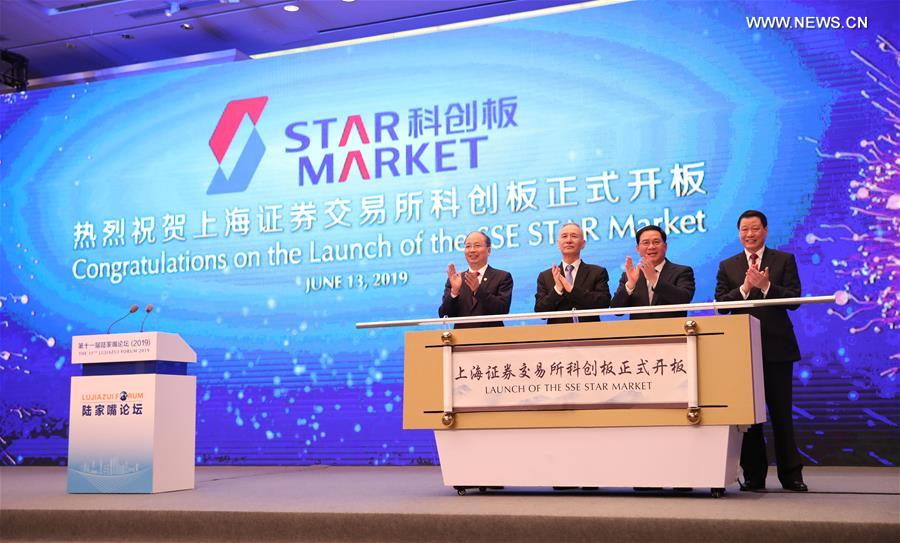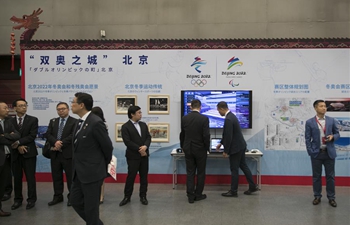
Honored guests preside over the launching ceremony of the sci-tech innovation board of the Shanghai Stock Exchange at the Lujiazui Forum in Shanghai, east China, June 13, 2019. China inaugurated the sci-tech innovation board on Thursday. (Xinhua/Fang Zhe)
SHANGHAI, June 13 (Xinhua) -- China inaugurated its science and technology innovation board on Thursday in Shanghai, kicking off the country's much-anticipated capital market reform this year.
The new market will support tech companies that are in line with the national strategies, make breakthroughs in core technologies and are well accepted by the market to grow stronger, Yi Huiman, chairman of the China Securities Regulatory Commission (CSRC), said at the launching ceremony of the sci-tech innovation board at the Lujiazui Forum in Shanghai.
Yi pledged to push forward key institutional innovations and implement the registration-based initial public offering (IPO) system on the new board that underlines sufficient information disclosure.
Yi said the CSRC will promote experience from the sci-tech innovation board in the Shanghai Stock Exchange to push forward sweeping reforms of the capital market and build the capital market into a regulated, transparent and open one full of vigor and resilience.
"The sci-tech innovation board is full of broad development prospects, but it would inevitably meet some challenges during its development," he said.
Yi vowed to stick to the market-oriented, law-based and international approach, respect the market rules and ensure the solid implementation of all reform measures.
Yi said the registration-based IPO system, when balancing its relationship with the quality of the listed companies, will surely lead to more regular delistings and is quite different from the current IPO pricing mechanism, and the market-based pricing for the new board could result in more IPOs at higher valuations.
Yi warned of short-term speculation and huge price swings in the early period when a limited number of companies are traded on the sci-tech innovation board.
He urged investors to invest in a more rational way and keep a close eye on the information disclosures as tech companies face more uncertainties.
The board's institutional innovations could also trigger some market risks in the initial period, Yi acknowledged, adding that the authorities will continue to improve all the institutional policies in the future.
The sci-tech innovation board, proposed in November 2018 and approved in January, is designed to focus on companies in the high-tech and strategic emerging sectors such as new-generation information technology, advanced equipment, new materials, new energy, energy saving and environmental protection, and biomedicine, according to the top securities regulator.
As of June 10, the Shanghai Stock Exchange had handled 119 applications for IPOs on the sci-tech innovation board. Of all, 41 companies, or 34 percent, are in the field of new-generation information technology, 21 in the advanced equipment industry, 27 in biomedicine and 13 in new materials.















